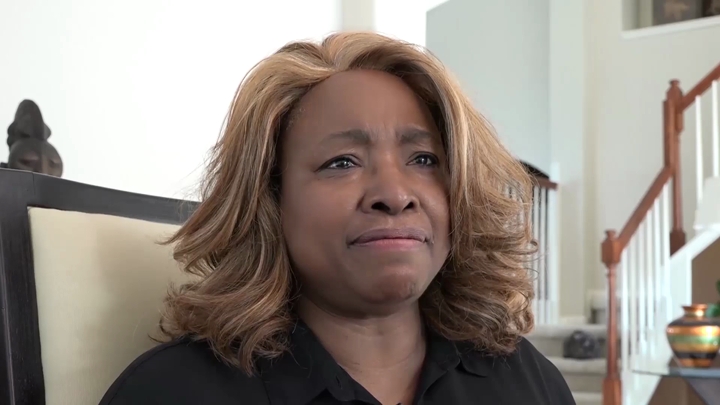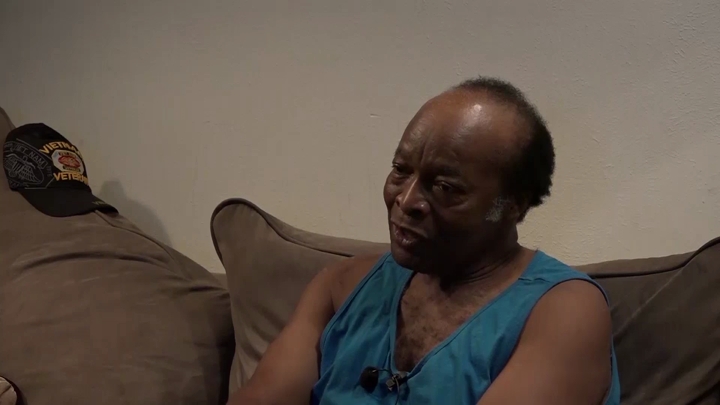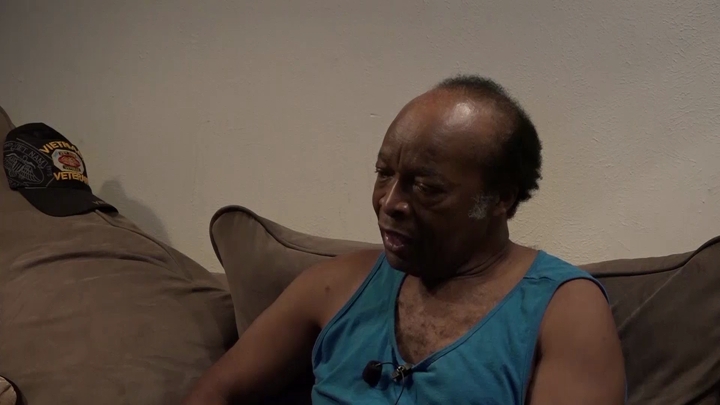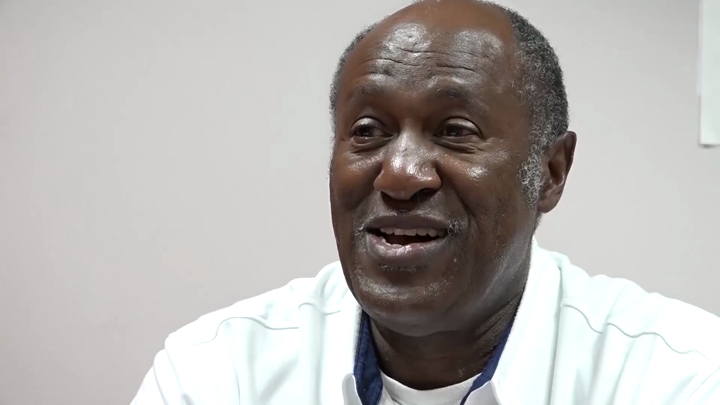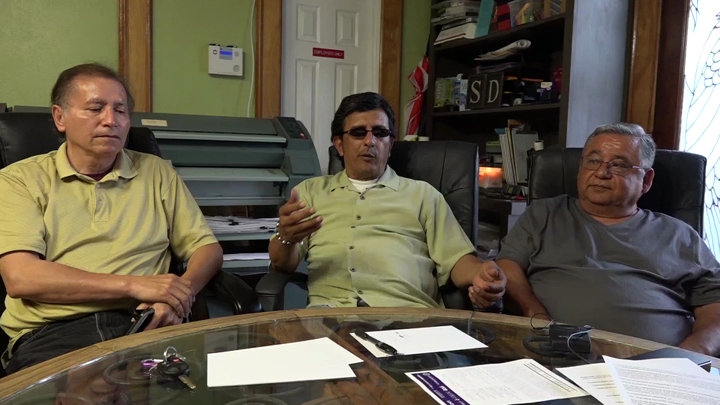Payne / Generational Differences
sign up or sign in to add/edit transcript
Payne: So, everyone expected us to win basketball. Everyone expected us to win football and win track, but what they weren’t expecting is when we would go to the academic decathlon. Now their shocked. No one was shocked when we one state or when we won district in basketball. When we go in and we win the academic decathlon, everyone’s freaking out. We would go to the UIL one-act play and we would win the one-act play. Now, we weren’t expecting that, but again, once we learned the competition, race might matter to you guys or it may matter to the community. It really didn’t matter to us because we were going to eb competitive. I think generational. From generation to generation, our parents fought to get us in the room. I believe our generation were fighting to show that they deserved to be in the room and now we are trying to teach our children to own the room. So, every time we go another step, I think we’re getting closer to breaking down some of those racial divisions but to say that it doesn’t exist anymore is pretty stupid. It still exists. My son came home. He goes to a private school and he was, quite frankly, raised 180 degrees different than me because he’s the only one in his class. He was in a basketball, little dribblers deal, and he said something about the black team and immediately—we never raised our children to think race, black, white, whatever. I’m thinking where did my son get this black versus white? We didn’t raise them—I was raised that way. I didn’t raise my children that way. Then he said—well, I said, “What do you mean the black team?” He said, “You know, the black team. We lost to the black team.” I said, “Well, why do you call them the black team?” He said, “Because that’s what they had on.” I’m thinking he was talking about the color of their skin. He was talking about the color of their uniform. Caught me by total surprise because I’m still of the mindset black versus white. He’s talking color of the uniform. I just remember that because when he said that, my wife looked at me, I looked at my wife, I’m going where’s he getting this from. Is he getting this from school because he’s the only black kid? It wasn’t anything that he was talking about, but that’s what I was thinking. I think that kind of showed me that wait a minute, you’re raising a son and you’re thinking race but he’s not. Then he gets interviewed one day about Dr. King because while we don’t necessarily talk about racial divisions, we still talk about the truth that race still matters. They were interviewing him for Martin Luther King and he was being interviewed similar to what’s going on right now and the station, I think it was Channel 12, asked me “Can we interview your son about Dr. King?” I said, “Sure. I don’t know what he’s going to say but you’re welcome to interview him.” They said “What do you know about Dr. King?” “He was a great man. He believed in equality for all people and he was killed by a white man.” The lady who was interviewing looked at me and she goes—well that’s the truth. That’s what happened. He understood that race mattered, and race caused Dr. King to lose his life. Now, he may have put it in the politically correct terms, but it was a fact and that’s how he saw it and that’s how he experienced life. So, his growing up of race has been much different than mine. Most of his friends are white but they recognize there’s a difference. We don’t sugarcoat it. There’s a difference. They understand it. Their parents, I think, kind of raised at the same time I was raised. They see the differences. They understand there are cultural differences. We try to deal with that. My children go to their parents’ house. I don’t think there are issues when my children go their parents house, to my knowledge. Their friends come to my house. I don’t think there are any issues. However, when my children go to their grandparents’ house, their friends’ grandparents houses, maybe a little difference. You know, the civil rights movement occurred in the sixties and most of those people were in their twenties in the sixties. Now they’re in their seventies and eighties. They didn’t just lose what they had and now they are CEOs and CFOs of major corporations. That division or those ideologies still exist. They’re just in a different arena now and they’re not as open as they used to be. Obviously, you could stand up very easily when I was in school and say I hate black people and there wasn’t going to be any retribution at all. Matter of fact, you might get elected. Now you say something like that, you get sued. So, they won’t say it openly. Now they’ll do some things differently now. That still takes place here in Southeast Texas and I think probably more so here in Southeast Texas than any other parts. I’ve lived in Houston. I’ve lived in D.C. and Missouri. You see a lot more of that here than you would probably see in other areas. We’re still just further behind. As you drive down the street you’ll see Confederate flags. You see Confederate flags in Houston or in Dallas or in D.C. and it stands out and people are kind of giving you the evil eye when you pass by. Nobody gives anybody the evil eye when you see a Confederate flag down ride down the street here. Quite frankly, some people are giving the thumbs up. Way to go. That’s a difference in the culture. I see the Confederate flag, and you have a right to your beliefs, but in my opinion, you probably don’t want me to know that, but in this community they don’t think that’s a negative and that’s a problem.
| Interview | Interview with James Payne |
| Subjects | Oral Tradition |
| Family | |
| Family › Family Histories and Traditions | |
| Family › Children | |
| Community Organizations › Civil Rights Organizations | |
| Race Relations | |
| Race Relations › Black-White Race Relations | |
| Education | |
| People › King, Martin Luther, Jr. | |
| Tags | High School Sports |
| sign up or sign in to add/edit tags | |
| Interview date | 2016-06-16 |
| Interview source | CRBB Summer 2016 |
| Interviewees | Payne, James |
| Interviewers | Grevious, Danielle |
| Duration | 00:06:31 |
| Citation | "Generational Differences," from James Payne oral history interview with Danielle Grevious, June 16, 2016, Beaumont, Civil Rights in Black and Brown Interview Database, https://crbb.tcu.edu/clips/3158/generational-differences, accessed February 17, 2026 |


